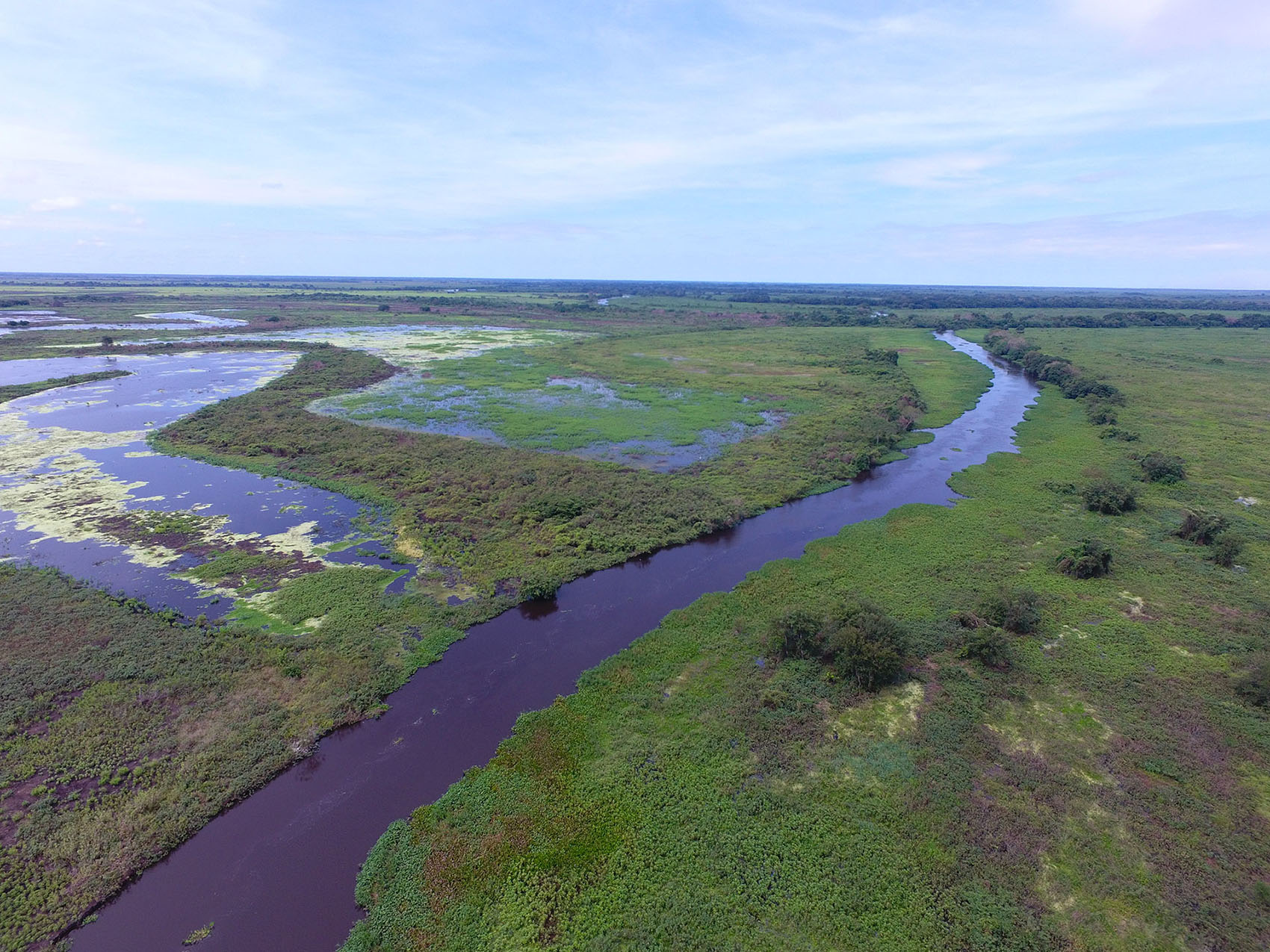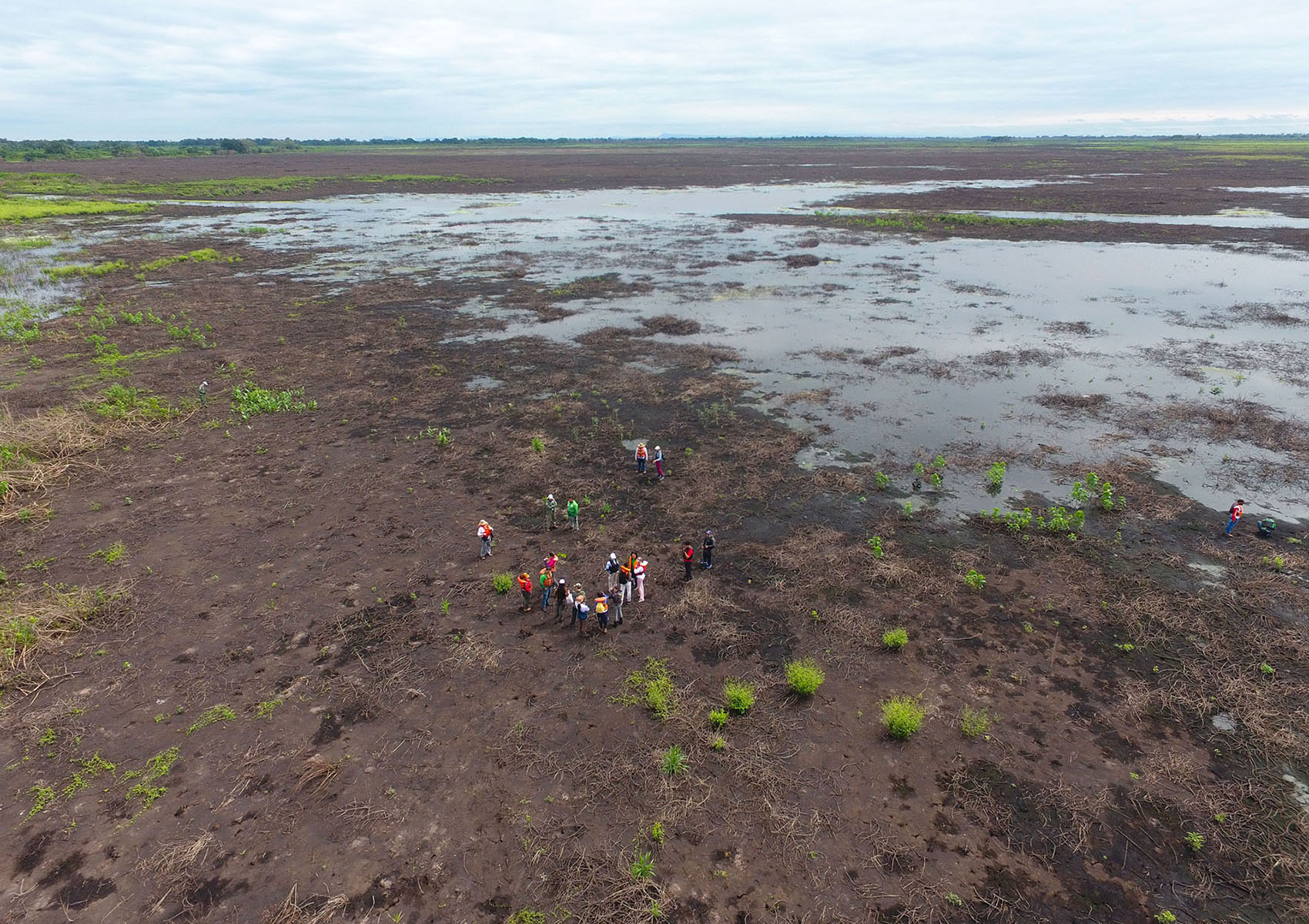SCO PANTANAL
Monitoring socio-environmental dynamics
Overview
The Pantanal is one of the world's largest wetlands, covering 150,500 km2 of the upper Paraguay River basin. Located in Brazil (80%), Bolivia (19%) and Paraguay (1%), this ecosystem is world-renowned for its high biodiversity, enriched by the surrounding ecosystems of the Cerrado, the Amazon, the Atlantic Forest, the Chaco and Bolivia's Chiquitana Forest. The region, declared a national heritage site by the Brazilian Constitution, includes four wetlands of international importance (listed as Ramsar sites) and a continuum of protected areas declared a UNESCO Biosphere Reserve and Natural World Heritage Site.
However, the Pantanal is now in danger. Its biodiversity is threatened by deforestation, intensive agriculture and the construction of hydroelectric dams upstream of the basin, all of which impact on the functioning of this fragile ecosystem. Above all, climate change, and in particular the intensification of ENSO (El Niño-Southern Oscillation) events, is affecting rainfall and flooding patterns, and leading to a drastic increase in fires. Since 1985, some 86,000 km² have been burnt at least once, 93% of them in natural vegetation types. In particular, the fire periods of recent years (2020 and especially 2024) have been record years.
|
◀︎ Burnt landscape near Taiamã Ecological Station (April 2024): an alarming anomaly, fires in the rainy season reveal the worsening threats to this Ramsar site. Climate change and anthropogenic pressures are now endangering one of the planet's most vital biodiversity refuges. © Uelison Ribeiro |
|
Against this backdrop, the objectives of the SCO PANTANAL project are threefold. They are to:
- Offer a tool for disseminating spatialized information derived from remote sensing data,
- Enable users to report information on targeted themes,
- Contribute to raising public awareness of environmental issues, in collaboration with environmental education projects.
🤝 To achieve this, we rely on a close collaboration between UMR LETG and Alkante, formalized in the TELKANTE LAB joint laboratory.
This project is a continuation of the SCO Chove-Chuva project, whose online platform produces indicators on socio-environmental dynamics in Mato Grosso. However, while this platform focuses primarily on the Amazon and Cerrado biomes, the Pantanal biome, with its wetland characteristics, is less well taken into account. This gap is also linked to the fact that there is less data available on this difficult-to-access area, which justifies the use of spatial data. The SCO Pantanal project therefore represents a unique opportunity to develop a new platform by integrating data relevant to wetland monitoring.
🤝 The SCO Pantanal project is being carried out in partnership with a number of Brazilian institutions, including the universities of Mato Grosso (UNEMAT, UFMT) and Mato Grosso do Sul (UFMS).
Application site(s)
Pantanal, Brazil
Data
Satellite
- Sentinel-2, Sentinel-3, Sentinel-6
- Landsat
- MODIS
- CHIRPS
Other
- Land use and deforestation products
- Precipitation estimates
- Climate model outputs
- Canopy height
- Fire mapping
- Precipitation
Results – Final product(s)
At the end of the project, the tool developed is intended to :
-
Enhance knowledge of socio-environmental dynamics in the Pantanal.
-
Make available to the widest possible audience indicators testifying to the territorial dynamics observed in the Pantanal in relation to adaptation and mitigation strategies implemented by companies.
-
Develop new technologies to enhance local knowledge and know-how.
-
Share methodologies and/or access to data from partner projects, such as SCO Altelys, SCO Chove-Chuva, TropiSCO...
Related project(s)
- SCO Chove-Chuva and its online platform
- SCO Altelys , whose tool will soon be online
- TropiSCO and its online platform
- SCO AIonWetlands, which has developed a portal for monitoring Mediterranean wetlands










